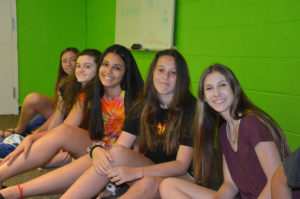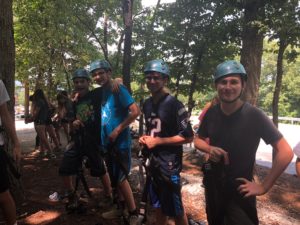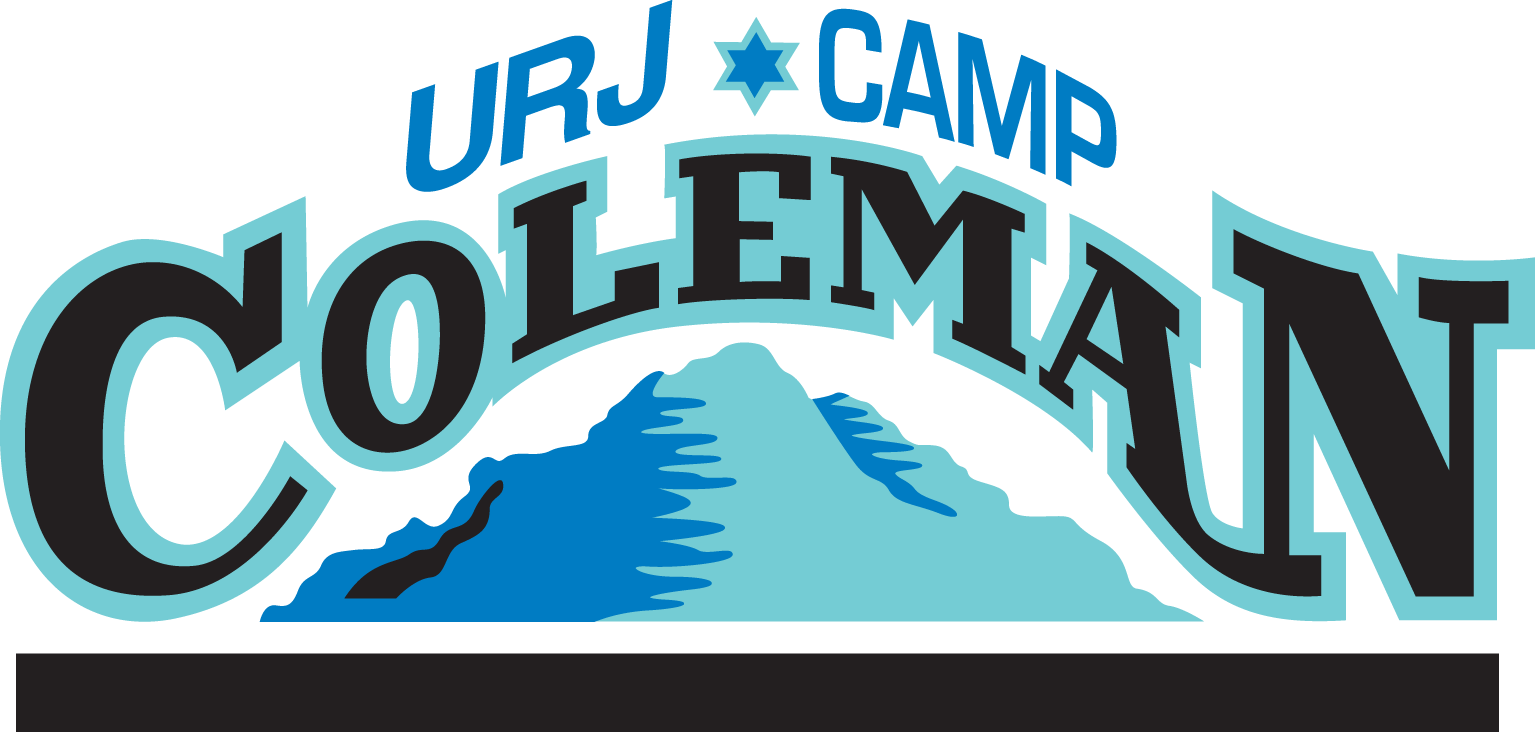by Raphaella Ruggiero, Photographer and Communications Specialist
 As Camp draws to an end, it’s safe to say the Kesher Unit has had an amazing summer!
As Camp draws to an end, it’s safe to say the Kesher Unit has had an amazing summer!
During a Mashehu called “Social Norms”, the campers were split up into groups and given a society name. They then had 20 minutes to create and build their societies with details including what they do for fun, how they communicate, how they get around, their customs, their holidays, and any other cool little details they could think up. The campers came up with things like “our national instrument is the…”, and “we only talk using hand motions and claps”. Once the campers established what their society was like, they then had an additional 10 minutes to act out what they had just created. Over the course of the 10 minutes, Rachel, the Kesher Programmer, started to mix things up. For example, she told one camper to leave their current society and try to join another, one to sit out for 3 minutes, and one to convince someone or even rescue them from a different society to join their own. The program rounded off with a discussion about what defines a social cultural norm and how they could create a more inclusive, safe community for others. After this activity, campers understood more what it feels like to be a part of a group and how difficult it can be for someone new coming into a group and not having any idea about what their norms are. This program helped to explore inclusivity and how Kesher specifically can welcome those who are new and make everyone feel safe.
 During an evening program called the “Game of Life”, the campers explored privilege. The campers walked into a room and were given a name tag with a series of letters, symbols and colors. There were various stations around the room which included “getting a job”, “getting a diploma”, “buying a house”, etc. Rachel then gave each individual camper one instruction, which could be “you need to get a job”, “you need to buy a house”, or “collect enough food for the week”. And so, the campers tried to go to all of the stations set up around the room to complete their instructions, which was easier for some to complete than others. This is because (unknown to the campers) the various symbols and colors on their name tags meant something different, and those running the stations were aware of their meaning and therefore depending on what was on their name tag, the campers may have been denied. For example, “L” represented being literate while “I” represented being illiterate. When a camper with an “I” went to the “get a job” station, they were given a job application; because they had the “I” on their name tag they were handed one in hieroglyphics and could not read it. These campers then had trouble getting a job and in turn getting money. The campers were amazed to realize that this is what some people go through everyday, and they came to terms with their own privileges they may have and how they can use them to help others. This was an incredibly eye-opening program where campers realized some injustices in our society and what they can do to help fix it.
During an evening program called the “Game of Life”, the campers explored privilege. The campers walked into a room and were given a name tag with a series of letters, symbols and colors. There were various stations around the room which included “getting a job”, “getting a diploma”, “buying a house”, etc. Rachel then gave each individual camper one instruction, which could be “you need to get a job”, “you need to buy a house”, or “collect enough food for the week”. And so, the campers tried to go to all of the stations set up around the room to complete their instructions, which was easier for some to complete than others. This is because (unknown to the campers) the various symbols and colors on their name tags meant something different, and those running the stations were aware of their meaning and therefore depending on what was on their name tag, the campers may have been denied. For example, “L” represented being literate while “I” represented being illiterate. When a camper with an “I” went to the “get a job” station, they were given a job application; because they had the “I” on their name tag they were handed one in hieroglyphics and could not read it. These campers then had trouble getting a job and in turn getting money. The campers were amazed to realize that this is what some people go through everyday, and they came to terms with their own privileges they may have and how they can use them to help others. This was an incredibly eye-opening program where campers realized some injustices in our society and what they can do to help fix it.
